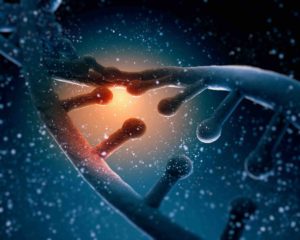Australian volunteers wanted for groundbreaking genetics of depression study
 Australian scientists are calling for adults who have been treated for clinical depression, to volunteer for the world’s largest and most rigorous genetic investigation into the illness to date.
Australian scientists are calling for adults who have been treated for clinical depression, to volunteer for the world’s largest and most rigorous genetic investigation into the illness to date.
The Australian Genetics of Depression Study is the local arm of a groundbreaking international scientific collaboration designed to detect genetic factors that contribute to clinical depression, in order to develop better treatments, and ultimately, find a cure.
One-in-seven Australians will experience clinical depression (commonly known as depression) during their lifetime.1 Clinical depression is the third most burdensome of all diseases in Australia (13.3 per cent).1 It is a complex illness that often occurs in families, and is typically caused by a combination of genetic and environmental influences.1
According to Professor Nick Martin, lead Australian study investigator and Head of the Genetic Epidemiology group, QIMR Berghofer Medical Research Institute, Brisbane, researchers are seeking 20,000 Australian male and female volunteers aged 18 and above, who are currently being treated, or have been treated in the past for clinical depression, to shed light on the genes that predispose people to clinical depression, with the ultimate aim of developing new treatments.
“We are aiming to identify genetic factors that influence why various treatments for clinical depression are successful for some people, but not for others.
“Identification of the genes that predispose people to clinical depression could revolutionise future research into causes, treatment and prevention of the illness,” Prof Martin said.
Prof Ian Hickie, AM, Co-Investigator and Co-Director for Health and Policy at Brain and Mind Centre, The University of Sydney, said “we now understand from modern neuroscience, brain imaging, brain scans and other studies, that the brain changes during clinical depression. What we don’t understand however, are the genetic causes in brain development that put you at risk of developing clinical depression.
“That’s why we need Australian adults who have, or are continuing to be treated for clinical depression by a doctor, psychologist or psychiatrist, and understand how disabling and potentially life-threatening this illness can be, to help us find the genetic causes.
“Participating in this groundbreaking study is free and easy. Volunteers simply complete a 15 minute online survey, and, depending on their responses, may be asked to donate a saliva sample,” said Prof Hickie.
“Study volunteers will be making a genuine contribution to better understanding, and helping us to solve this devastating illness.”
Study researchers will analyse saliva (DNA) samples to investigate and identify specific genes that may be associated with clinical depression, through a process known as ‘genome-wide association scans’ (GWAS). GWAS will allow researchers to look for genetic similarities and differences, which will help them to understand why some people experience clinical depression, while others do not, and why some people living with clinical depression respond to certain treatments, while others do not.
The Australian Genetics of Depression Study is being conducted internationally, with 200,000 participant samples required. Australia is aiming to contribute 10 per cent of the total study participants.
“We are aiming to recruit 20,000 Australian participants to the study, which would make up 10 per cent of the international requirement, within the next two years and may even increase this number depending on community support for this groundbreaking research initiative,” Prof Martin said.
To volunteer for the Australian Genetics of Depression Study, or to learn more, head to:
Web: www.geneticsofdepression.org.au
Email: gendep@qimrberghofer.edu.au
Free-call: 1800 257 179.
References
- Black Dog Institute. Facts and Figures about Mental Health and Mood Disorders, 2012. Available at: https://www.blackdoginstitute.org.au/docs/Factsandfiguresaboutmentalhealthandmooddisorders.pdf [last accessed January, 2017].

There is one comment